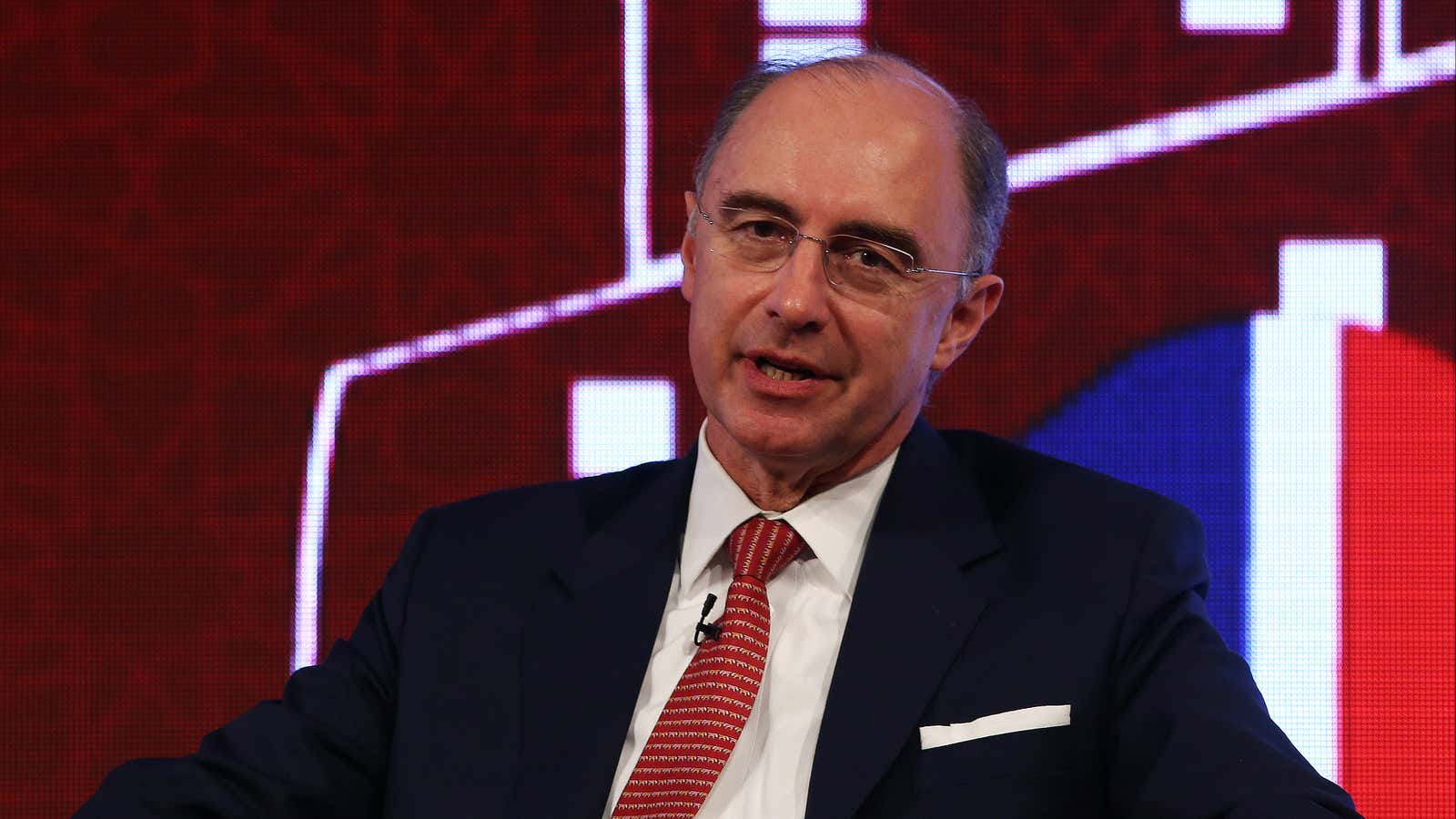One of the UK’s unlikely Brexit champions—a Frenchman who has tried to protect London’s financial sector from European Union officials (including the French ones) who want to dismantle it—has stepped down. Today (Nov. 29) London Stock Exchange Group CEO Xavier Rolet is leaving the company after its boardroom drama spilled into the public.
On the outside, the announcement last month that Rolet would leave, after more than eight years as CEO, seemed fairly routine. That was until The Children’s Investment Fund, an activist investor, claimed he was being forced out by the company’s chairman. TCI’s Sir Christopher Hohn waged a public battle to retain Rolet, who was due to step down in December 2018. It ultimately backfired, with Rolet leaving sooner than previously agreed, according to a statement:
“Since the announcement of my future departure on 19 October, there has been a great deal of unwelcome publicity, which has not been helpful to the Company. At the request of the Board, I have agreed to step down as CEO with immediate effect. I will not be returning to the office of CEO or director under any circumstances. I am proud of what we have achieved during the past eight and a half years.”
Rolet’s tenure at the head of the company has by several standards been a success; Its share price has rallied substantially, and the company has expanded into businesses like indexes and derivatives that are more lucrative than running a stock exchange. LSE also bought a seldom-talked-about clearinghouse called LCH in 2012, which has proved pivotal in its transformation.
The Brexit effect
Things took a turn last year when Britain voted to leave the EU. LSE had planned to merge with Frankfurt-based Deutsche Boerse, which would have created Europe’s biggest exchange company. But Brexit made that deal untenable for German authorities. And LCH, which collects collateral and monitors risks to contain trading defaults, was immediately targeted by EU politicians.
Trillions of dollars of euro-denominated derivatives are processed at LCH, and yanking them away from London would perhaps give EU officials more oversight over their own currency while punishing the UK.
In the UK, about $1.2 trillion of interest-rate derivatives change hands each day, which is one of the pillars of London’s financial industry. While the EU is only targeting euro clearing, most of which takes place in London, Rolet has argued that stripping out one important currency could drag all the rest with it.
Since Brexit, Rolet has been forced to devote substantial time to protecting LCH. In May, he argued that restricting the clearing of euro-dominated transactions to the EU would “fragment global markets” (paywall) and also said that it could cost investors €100 billion. The year before, he said it could also cost around 100,000 jobs. Though some in the industry say those figures are exaggerated— Deutsche Bank’s CEO said the number of jobs at risk is “more like 74,” according to the Financial Times (paywall)—the robust public defense may have helped elevate his profile at No. 10. It appears, however, that frictions also developed (paywall) within the boardroom at LSE.
Investors have generally seemed pleased with Rolet’s performance, but executives are replaceable. Even Bank of England governor Mark Carney said he was “a bit mystified” about the debate over Rolet’s succession. David Warren, who will take over as chief executive until Rolet’s successor has been hired, has been the company’s CFO for five years and was also an executive at Nasdaq.
But a messy handover as key Brexit negotiations are being made, and the battle over euro clearing continues, hardly seems ideal for LSE—or for the UK.
